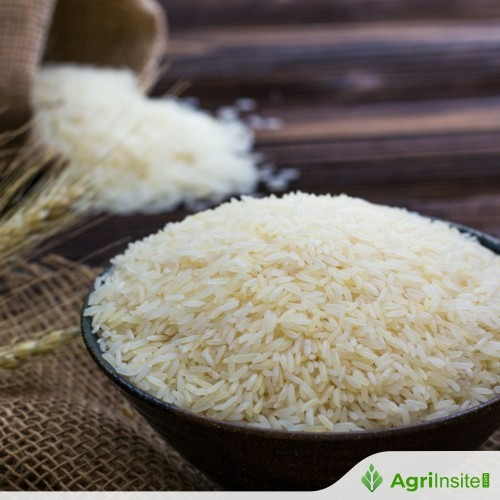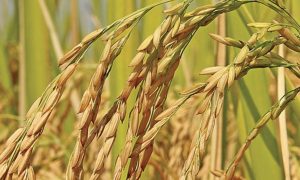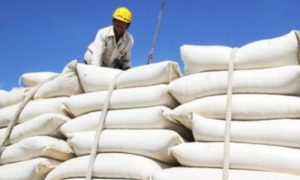European buyers bought more Indian basmati this year as Pakistan’s was expensive, says Tilda brand owner Ebro

European buyers chose Indian basmati over Pakistan’s as it was \$250/tonne cheaper, said Ebro India MD Graham Carter. India exported 1.73 mt basmati worth \$1.5 billion during April–July, while Pakistan shipped 0.83 mt. Ebro sources basmati from 10,000+ farmers, exports 80%, and is expanding its domestic Tilda rice and pasta business.
European buyers purchased more basmati from India this year than from Pakistan, as the latter was $250 a tonne more expensive, according to Graham Carter, Managing Director of Ebro India Pvt Ltd.
“Pakistani basmati was consistently $250-plus more expensive than Indian this year. Two years ago, we had the reverse. India was $200 more expensive than Pakistan,” he told businessline in an online interaction.
Ebro India, which markets basmati rice under the Tilda brand, is an arm of the Spanish multinational company Ebro Foods SA, which operates in 60 countries with a €3.2 billion global turnover. After launching its operations in India in 2012, it has set up a laboratory for analysing pesticide residues.
Caught off-guard
Stating that the market is currently thin and it would not be the right time to draw comparisons, Carter said the crop in Pakistan was lower last year, and many traders stocked the fragrant rice at higher prices.
Graham Carter, Managing Director of Ebro India Pvt Ltd
“They held it, expecting the prices to increase to meet their expectations. Unfortunately, it never did. Many people were caught off guard in Pakistan by this. Maybe, I think they were saved by a late demand from the Middle East, which enabled them to liquidate a lot of their stocks,” the Ebro India MD said.
According to the Thai Rice Exporters Association, 2%-broken Indian basmati is quoted at $880 a tonne, while Pakistan’s is offered at $1,120. Data from the Agricultural and Processed Food Products Export Development Authority (APEDA) show that during the April-July period of the current fiscal, 1.73 million tonnes (mt) of basmati rice valued at $1.5 billion were exported. In the 2024-25 fiscal, 6.06 mt of basmati were exported, fetching $5.94 billion.
Pakistan’s basmati rice exports were up a tad at 0.83 mt in the 2024-25 fiscal ending June, earning $795.698 million, according to data from the Pakistan Bureau of Statistics.
Significant saving
Carter said buyers abroad saved considerably by buying Indian basmati rather than from Pakistan. “The basmati market is quite complex. Some destinations prefer Indian basmati and some Pakistani, while others don’t mind whether it’s Indian or Pakistani as long as the price is right,” he said.
The Tilda brand is very much Indian, and the demand for Indian basmati is strong. ”In addition to the Tilda brand, our colleagues in Europe, who are not fussy whether the rice comes from Pakistan or India, also bought more from us because of the price difference between Pakistan and India,” said the Ebro Managing Director.
The company exports directly from India to Canada, the US, and Middle East destinations such as Qatar, Dubai and Saudi Arabia. “We also export to Africa and other destinations such as Australia,” he said.
Ebro recently converted all its domestic branding to Tilda to gain more leverage. “Tilda is the number one rice brand in the UK, and it has a very significant following in many other countries too. We are looking to leverage the Indian brand and expand our volumes in the domestic market,” said Carter.
The company also manufactures and markets semolina and pasta for the domestic market. It is also in the process of launching pasta that can be cooked in three minutes without compromising on the quality. | Photo Credit: Special arrangement
US opportunities limited
The Ebro India managing director said the 50 per cent tariff imposed by the US last week will limit opportunities for Indian basmati. “We’re relatively a small player. We have 10-15 per cent of the market share in the US. We sell Tilda in the US, as well as brands owned by our sister company Riviana. We also sell ready-to-eat Basmati as well,” he said.
Ebro India sources its basmati from a group of 10,000-12,000 farmers, who try to meet the company’s quality parameters, growing the long-grained rice on nearly one lakh hectares. The growers’ payments are based on the rates prevailing in the agricultural produce marketing committee (APMC) yards, he said.
The company procures 1.8 mt of Basmati in India and exports about 80 per cent of it. It runs a farmer education programme “Ekta” and meetings are held with groups of farmers. The company holds demonstrations on new practices.
It has a comprehensive network of field staff who meet with farmers and discuss the issues they face. They provide advice and solutions to manage their crops. On the basmati crop prospects, Carter said the acreage may be slightly down this year.
On farmers complying with the pesticide residue norms, the Ebro managing director said farmers in Haryana, who are affluent, have to be managed. However, in parts of Uttar Pradesh, where the growers are not well off, the fragrant rice is grown almost organically. Besides, the company manages to reduce water usage by farmers, which also reduces pesticide applications.
Pasta, semolina
Farmers who work with Ebro over a period of time get a premium for their basmati rice as the company strengthens their agronomy practices. “Not only do they produce the right quality of rice, they produce more of it at a lower cost,” said Carter.
The company also manufactures and markets semolina and pasta for the domestic market. “We are also doing a small amount of export of pasta to Thailand and a couple of other destinations,” he said, adding that it started this year and has shipped 5-6 consignments so far.
Ebro sources Durum wheat from Madhya Pradesh for its premium grade pasta and lower soft grade wheat from Haryana for its non-premium grade. The company procures 12,000-14,000 tonnes of wheat annually in the country, said Carter.
The company plans to expand the reach of its basmati rice and pasta brand in the domestic market. It is also in the process of launching pasta that can be cooked in three minutes without compromising on the quality.
Without giving the numbers, Carter said Ebro has made significant investments in the country in setting up plants for rice processing, semolina and pasta.
To Read more about Rice News continue reading Agriinsite.com
Source : The Hindu Business line















